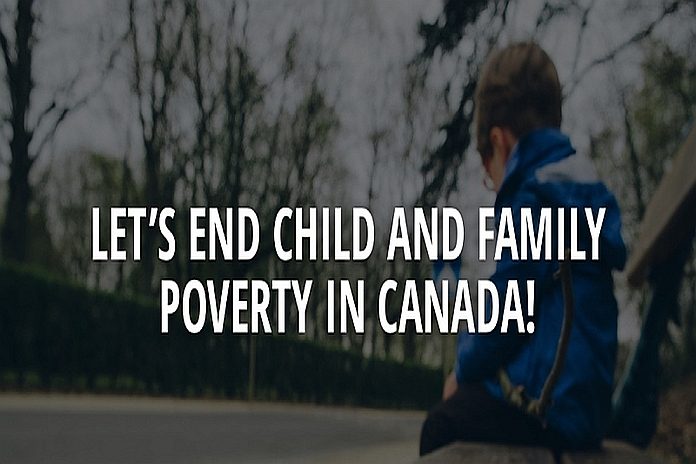WINNIPEG, Canada – On the eve of a new parliament being sworn in, the new and returning cohort of federally-elected politicians have the opportunity to make history by recommitting to the elimination of child and family poverty.
November 24, 2019 marks 30 years since the signing of the all-party resolution in the House of Commons to end child and family poverty. In the three decades since the motion was signed, movement on poverty reduction has stopped and started, and in the meantime, an entire generation of children have grown up in poverty. Nearly one in five children across the country are living in poverty, and the numbers are much higher for children from Indigenous communities and marginalized groups.
“Significant rates of child poverty exist in every federal riding across the country, with statistics showing higher poverty rates for of Indigenous children, racialized and newcomer children, and children from female-led lone parent households,” said Leila Sarangi, national coordinator of Campaign 2000. “In a country as wealthy as Canada, this is completely unacceptable.”
While the Canada Child Benefit has shown to be an important tool to reducing child poverty, the progress has been uneven across the country, and with 28 federal ridings experiencing an increase in child poverty between 2015-2017. Exacerbating the challenge of reducing poverty is the limitations with the official poverty measure adopted by the federal government, the Market Basket Measure.
There is no costed-out basket for northern communities and First Nations reserves and it has not been updated since 2010. The current use of it underestimates the cost of living, therefore, underestimating the rate and prevalence of poverty.

“Unfortunately, the government established an absolute measure of material deprivation as the official poverty line rather than the Low-Income Measure which is a more comprehensive relative measure and strongly related to health status and child development,” said Dr Sid Frankel, University of Manitoba. “It is also the international gold standard used by UNICEF and OECD.”
Measurement of poverty must not be misleading or politicized – doing so results in children in the deepest poverty being left out and left behind from the marginal improvements being seen across the country.
The development of a Canadian Poverty Reduction Strategy, National Housing Strategy, an updated Food Policy, and the consideration of a national Pharmacare plan steps in the right direction towards addressing the major structural issues that keep many low-income people precariously housed, hungry, and in poor health. Without significant investments in these areas targeted towards children and families from marginalized groups, and in a universal childcare system, these strategies simply remain plans on paper.
“The 2018 Canadian Poverty Reduction Strategy is a modest beginning – now it is time for members of parliament to demand a more ambitious strategy and to back it with investments and updated timelines,” said Sarangi. “The government has a responsibility to ensure that life is improved for all children. It is not enough to lift children just over the poverty line, or to apply a measurement that makes it look like the numbers are going down when they’re not – the goal must be to make sure families thrive.”
Making poverty history must be a key driver across all government sectors. Solutions must be place-based and community-driven. The United Nations Social Development Goals and indicators help ground poverty reduction in a human rights framework, but we’ll never get there unless we recommit our efforts to the total eradication of child and family poverty.
We cannot afford to wait another 30 years.






